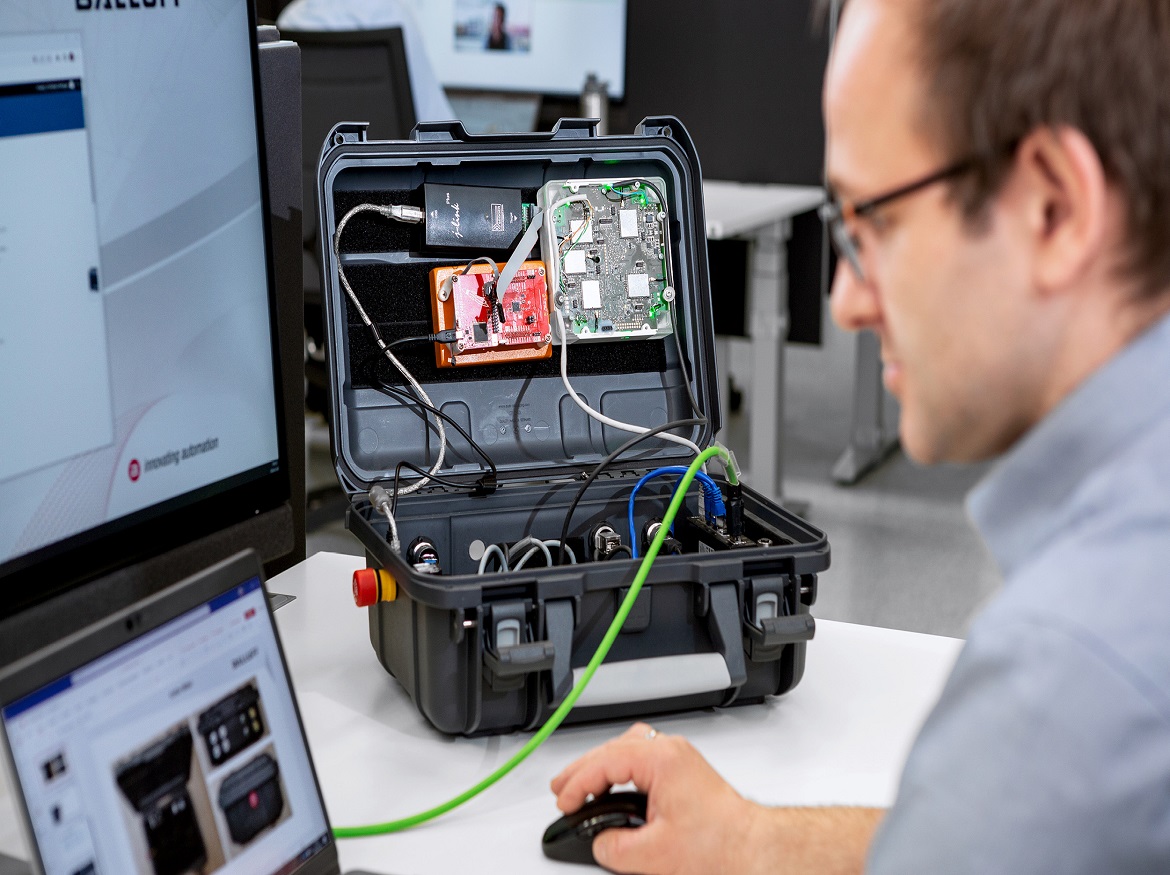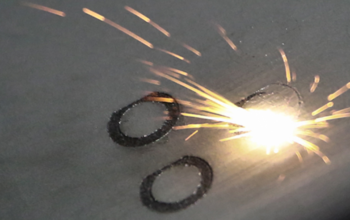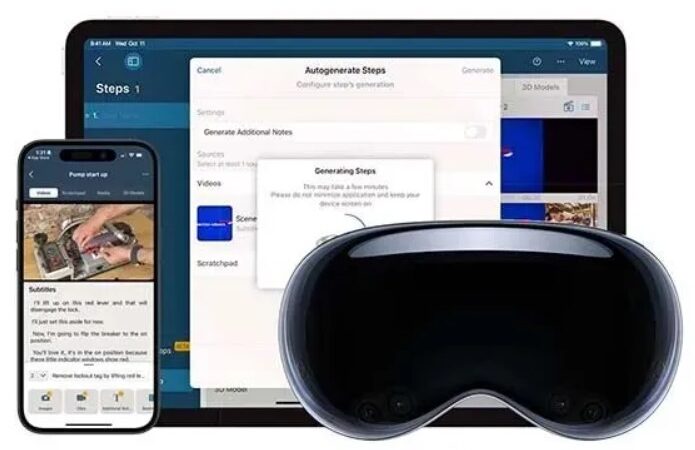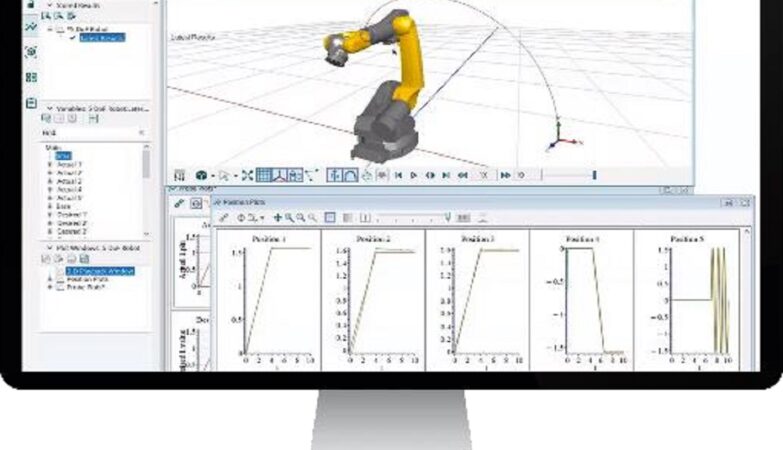A passion for development: Christian Metzger has been working at Balluff for 20 years. Together with his team, he has developed numerous products and technologies and was also involved in the establishment of the industry standard IO-Link. His current project is a “lab to go”, enabling employees to flexibly work from anywhere.
Whether it’s hardware, firmware, or software: when it comes to development, Christian Metzger is not easily outdone. He is Head of Firmware Platforms and, with 20 years at the company under his belt, a true Balluff veteran. Metzger started at Balluff when he was still working on his degree at Baden-Wuerttemberg Cooperative State University (DHBW) in Stuttgart, Germany. Over the years, he got to know all sides to the development of industrial automation, worked on numerous products and technologies, and was also involved in the development of the industry standard IO-Link.
Today, the university-educated engineer represents Balluff at the IO-Link Consortium and heads an international team of 13 developers. Together, they provide the technical foundation for many Balluff products. The thing that has been in Christian Metzger’s mind from day one? “Definitely efficiency. It affects all our tasks in development. Why should we do things twice or three times when we can establish consistent standards that make sense instead?”
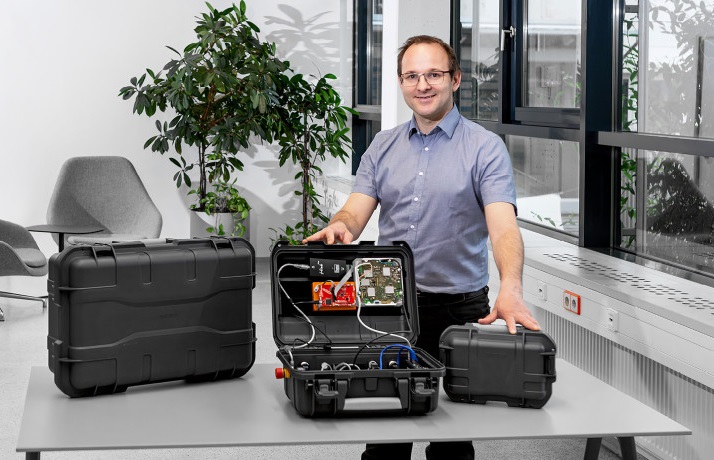
Success through commitment
When Christian Metzger graduated in 2006, he initially went into RFID development. He had been a part of the IO-Link Consortium in 2005, where leading automation companies worked together on developing the communication standard. “That was a very interesting experience,” he reminisces, adding: “IO-Link is groundbreaking because it enables us to easily connect sensors and devices by different manufacturers. This has allowed us to make automation systems much more flexible and efficient.”
Positions in networking and BTL followed, where Metzger worked as a sub-project manager. This new leadership responsibility was not entirely new to him: since his youth, Metzger has been privately involved in Protestant youth groups in his hometown of Calw in southern Germany, first as a youth group leader and later as the treasurer and chairman. “You see, my hobbies don’t necessarily invite me to relax,” he laughs. “But that’s how I feel most comfortable: when I have a task, a problem to tinker with. That applies professionally as well as privately.”
Innovative thanks to the pandemic
At the beginning of the pandemic in 2020, Christian Metzger was presented with a challenge that seemed to be tailor-made for him: “We had to switch to working from home overnight,” he remembers. “It was clear to us that this was an important measure. Balluff wanted to do its part in fighting the pandemic.” But there was one issue: the teams in firmware development work with stationary, complex setups that cannot be easily transported between the lab and the home office. “It all came down to one question: How can we be able to work without violating social distancing rules or spending hours every day setting up and taking down equipment?” Christian Metzger came up with an idea: “I was thinking about how we could replicate the lab environment on the smallest scale possible, like a lab to go.” The answer: a mobile development case that can be equipped as needed and easily utilized at different locations — whether in the office, at home, or on the road. The decisive advantage: “Our case is a standardized solution,” Christian Metzger stresses. “We already had similar solutions for individual cases before all this, but now developers companywide can customize and have access to this concept to meet their needs.”
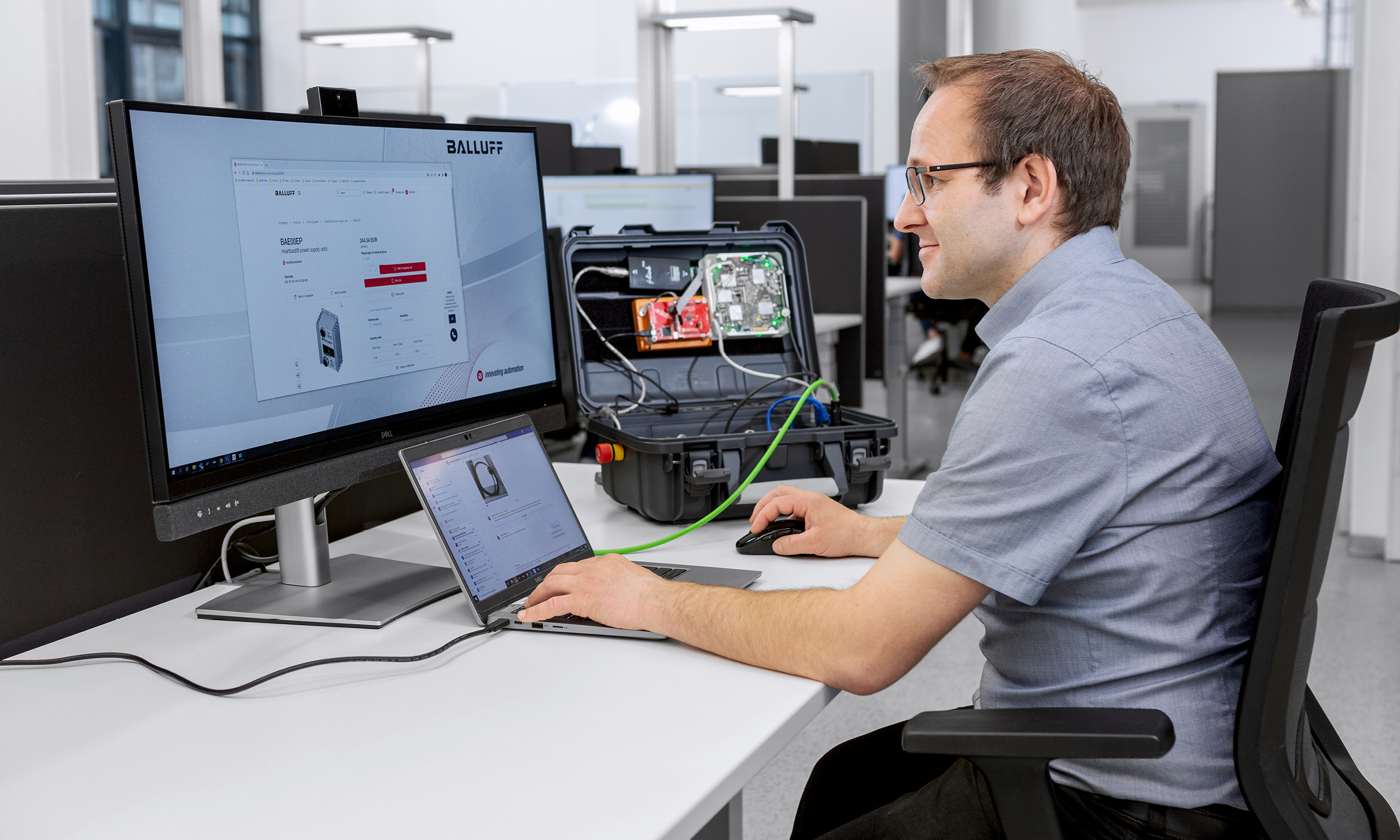
What looks like an ordinary toolbox can, in fact, be filled with the most modern development tools and transported anywhere. Inside, the case offers space for all kinds of setups. Its touch-proof design protects sensitive electronic components from damage and interference. “The case allows our developers to work efficiently in non-laboratory environments without violating safety guidelines,” Metzger explains.
Its delivery process is just as efficient as the case itself: After a pre-production run of 15 briefcases was tested, it officially went into production in May 2023 and now comes in three different sizes.
The briefcase is very popular with the whole team: “I often get feedback asking why we haven’t thought of this sooner,” says Christian Metzger. One reason for its popularity is the fact that the case does not only solve issues related to the pandemic or efficiency: “Before we had the case, our developers would assemble their setups themselves. That means choosing components, ordering, unpacking, building — and this process makes it easy to get lost in the details.” Now, even highly specialized setups are only a few clicks away, since the case can be individually configured and ordered by developers throughout the whole company on the internal Balluff Marketplace.
“We owe it to the teams involved that the case exists as it does today — all employees that were committed to bringing it from idea to execution,” Metzger summarizes. “Without all these different creative minds, it would not have been possible to go from defining the requirements and safety checks all the way to material management.”
Click on the following link Metrologically Speaking to read more such news about the Metrology Industry.


